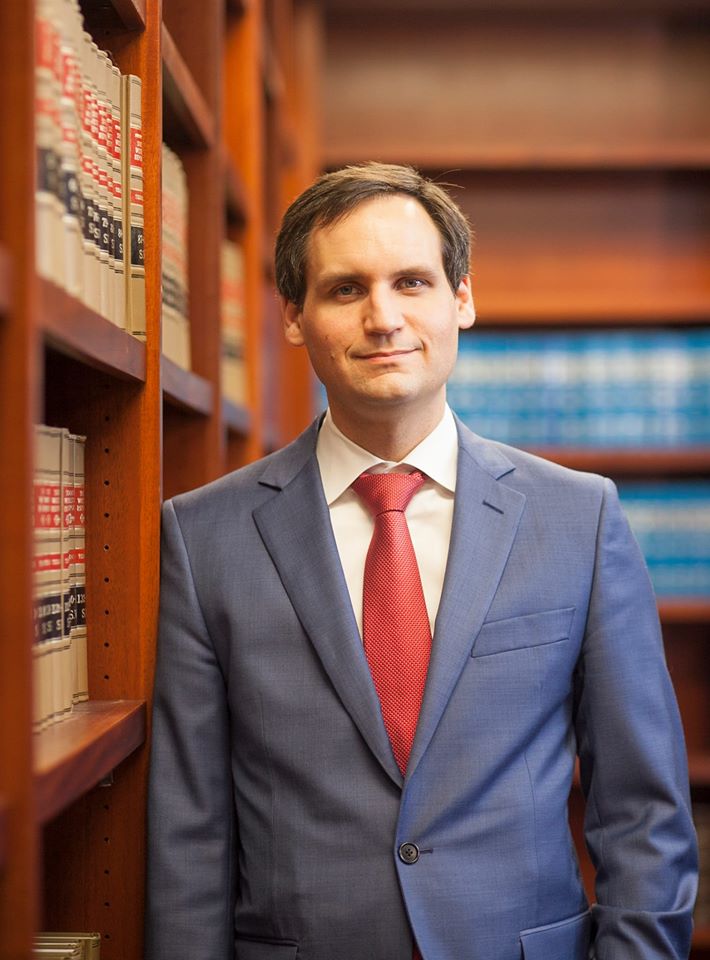(Note: As I have done in past elections, I am running a series of Q&As for judicial candidates in contested Democratic primaries. This is intended to help introduce the candidates and their experiences to those who plan to vote in March. I am running these responses in the order that I receive them from the candidates. You can see all of my interviews as well as finance reports and other information on candidates on my 2016 Election page.)
1. Who are you and what are you running for?
My name is Stephen Aslett and I am running for judge of the 179th District Court.
2. What kind of cases does this court hear?
The 179th District Court hears felony criminal cases.
3. Why are you running for this particular bench?
I am running because I believe I can improve the 179th District Court by bringing more cases to trial and doing so more quickly and efficiently. I am also running because I believe I can make our criminal district courts more transparent and accountable to the people they serve.
4. What are your qualifications for this job?
With the exception of one year spent after graduation clerking for a federal judge, I have worked my entire legal career at the Harris County District Attorney’s Office. As an assistant district attorney, I have handled thousands of criminal cases from minor misdemeanors all the way to serious felonies. I have tried numerous felony cases to juries, ranging from burglaries to murders. As a prosecutor in the Vehicular Crimes Section, I made the scenes of fatal intoxication-related crashes—often in the middle of the night—and tried intoxication manslaughter cases to juries. As a prosecutor in the Family Criminal Law Division, I handled serious felony domestic violence cases.
I am currently a felony prosecutor in the 208th District Court where I handle serious felony cases such as aggravated sexual assaults, aggravated robberies, and murders. In short, I have a wide variety of experience handling the very same types of felony criminal cases that I would preside over as judge of the 179th District Court.
5. Why is this race important?
All judicial races are important, but criminal district court races are probably the most important. Criminal district court judges preside over the most serious criminal cases. The sentences they impose and the bond amounts and conditions they set directly affect the safety of everyone in Harris County. Their rulings directly determine if the Constitution’s protections are actually meaningful to the average citizen charged with a crime.
6. Why should people vote for you in the primary?
People should vote for me in the primary for three reasons.
First, I will work to bring more cases to trial quickly and efficiently. Some of our district courts do not try as many cases as they are capable of trying, and the cases that do get tried take far too long—often years—to get to trial. It has resulted in a system in which defendants, especially those who are economically disadvantaged, languish in jail and crime victims wait endlessly for their day in court. The 179th District Court in particular ranks in the bottom third of all courts for total number of jury trials tried over the last three years. In addition to increasing the total number of jury trials and reducing overall time to trial, I will post felony criminal court statistics online so that voters can be more informed about how many cases are being tried in their criminal courts and hold their judges, including me, accountable.
Second, the Harris County felony bond schedule needs to be revised. Our current bond schedule sets bonds too low for those charged with violent crimes and too high for those charged with nonviolent drug offenses. Our courts also make too little use of personal recognizance bonds for first-time non-violent offenders. I would increase the use of personal recognizance bonds in appropriate cases and work with the other judges to reform the bond schedule to make it fairer.
Finally, I have the experience, judgment, and temperament to be a criminal district court judge. As a prosecutor, I have always been guided by my duty “not to convict but to see that justice is done.” I have dispassionately reviewed the evidence in every case I have handled, deciding whether to seek a lengthy sentence, place a defendant on probation, reduce the charge, or dismiss the case outright. I have developed a reputation among both other prosecutors and the defense bar for being fair and reasonable, and I would do my best to keep that reputation as judge.

